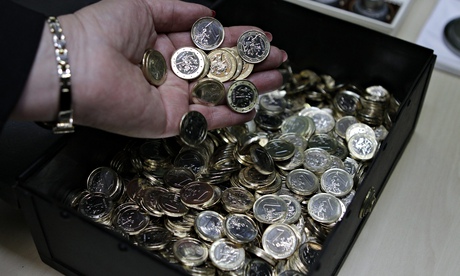
The scale of the task facing Mario Draghi, president of the European Central Bank, in his attempt to prevent Europe sliding into a damaging deflationary spiral was underlined on Monday when new data showed inflation falling to a five-year low in May.
Official data for the 18-member currency zone showed prices rose by just 0.5%, supporting concerns that consumers remain wary of spending while the economy appears weak.
Adding to the sense of gloom, Germany's central bank said it believed growth in the eurozone's powerhouse economy had slowed in the past three months, though it still expects a modest recovery later this year. In its monthly report, the Bundesbank predicted Germany would enjoy "muted" growth in the three months from April to June before reaching a 1.9% annual growth target by the end of the year.
Germany's growth in the first quarter of 0.8% was four times the average for the eurozone, well ahead of France's 0.1% and a contraction in output in Italy and the Netherlands, which fell 0.1% and 1.4% respectively. Inflation has fallen steadily across the eurozone since 2011, when it hit 3%. A further slowdown in May followed falls in the cost of telecommunications and food, the statistics office Eurostat said, confirming provisional figures.
Prices fell by 0.1% in May on the previous month, with the cost of services down by 0.2% compared with April.
This month Draghi implemented a series of interest cuts to spur consumption and help push inflation back to its target of 2%. Worried about persistent weakness in some countries, the ECB became the first major central bank to introduce negative deposit rates – charging banks to park funds overnight. It also launched ultra-cheap four-year loans to banks in order to boost lending to companies.
Draghi said the ECB would "act swiftly with further monetary policy easing should it become necessary to further address risks of prolonged low inflation".
An executive board member, Benoît Coeuré, said on Friday there was no need for large-scale asset purchases for now because the eurozone was not seeing deflation.
However, three eurozone countries reported price deflation in May. Consumer prices in Greece were down in May by 2.1% compared with a year earlier after a 1.6% drop in April. The annual rate of inflation in Portugal was -0.3% in May. In Cyprus, it stood at -0.1%.
Core inflation, excluding energy, food, alcohol and tobacco, fell to 0.7% in May from 1% in April. Energy prices were flat on the year.

